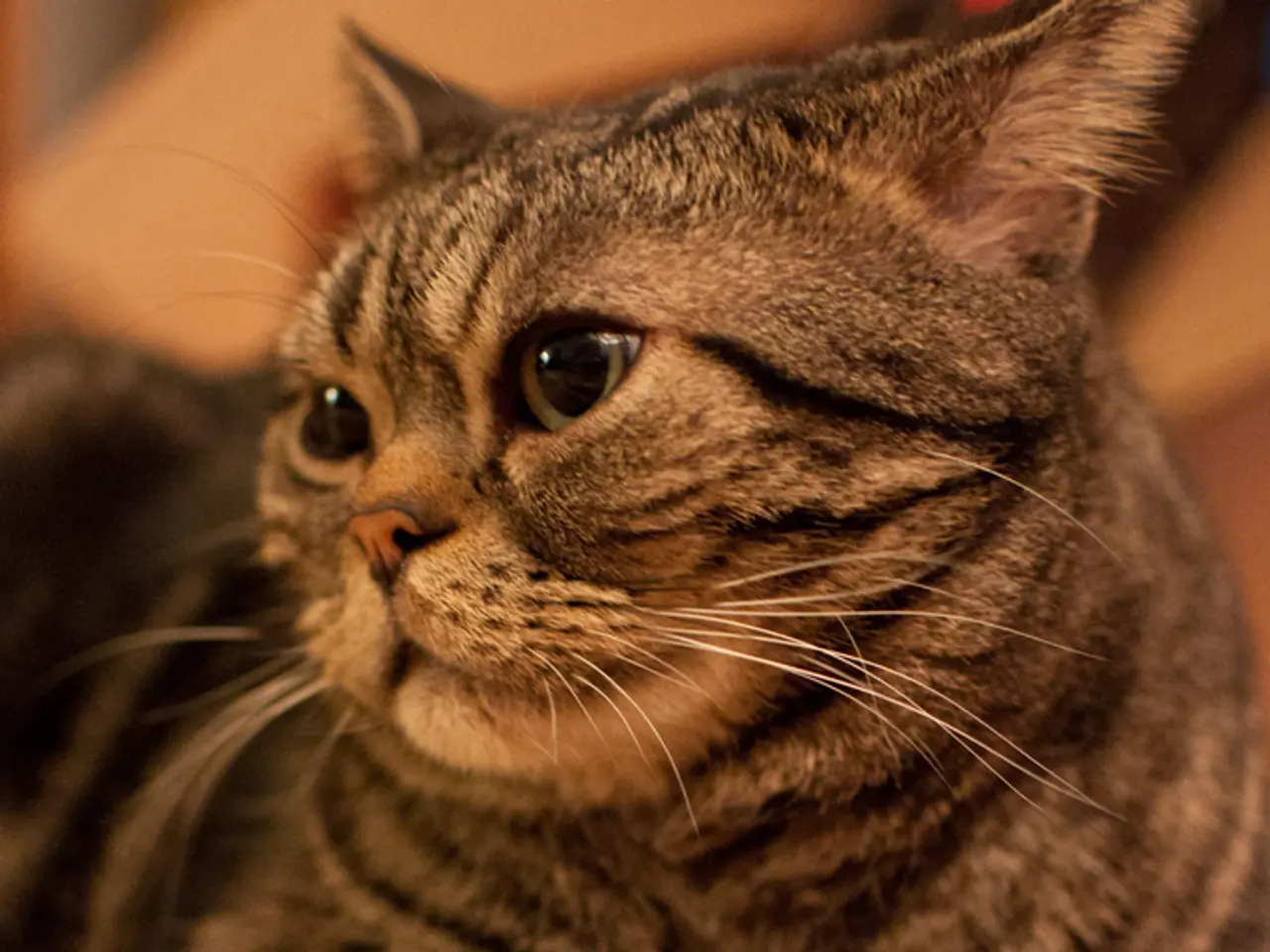Exploring the Mystery: Why is my feline friend urinating randomly? Let's delve into potential causes
Inappropriate urination in cats is a common yet complex issue that can be a source of frustration for many cat owners. This problem often arises due to a combination of factors, including litter box problems, medical issues, and behavioral causes.
### Litter Box Problems
Cats may refuse to use a litter box if it is dirty, inaccessible, or if they dislike the type of litter or box used. Physical difficulties such as arthritis, injuries, or nerve damage can also make it challenging for a cat to get into or position itself properly in the litter box. To address this, it's essential to keep the litter box clean, use an appropriate type of litter, and ensure easy access, especially if the cat has mobility issues.
### Medical Issues
One of the most common medical issues causing inappropriate urination is Feline Lower Urinary Tract Disease (FLUTD). This umbrella term covers various bladder and urethral diseases that cause inflammation, pain, urgency, and accidents outside the litter box. Other medical conditions, such as urinary tract infections, bladder stones, sterile inflammation of the bladder (idiopathic cystitis), kidney disease, diabetes mellitus, thyroid disorders, and age-related problems, can also lead to increased urination frequency or discomfort, resulting in mistakes outside the litter box.
### Behavioral Causes
Stress and anxiety, often caused by environmental changes like a new pet, baby, or moving house, can induce inappropriate urination in cats. Additionally, marking territory or expressing distress through urination may occur, particularly if medical causes are excluded.
### Solutions for Prevention
The first step when dealing with inappropriate urination is to rule out medical issues through a full physical exam and urinalysis. Once medical causes have been addressed, focus on litter box management, environmental enrichment, and dietary changes to prevent further issues.
Maintaining a clean litter box, experimenting with different types of cat litter and box styles, and avoiding placing the litter box near loud appliances or in high-traffic areas can help prevent inappropriate urination. Environmental enrichment, such as reducing stress with stable routines, multiple resources (toys, scratching posts, separate feeding and toileting areas), and considering anti-anxiety treatments if recommended by a vet, can also be beneficial.
In some cases, special diets may be prescribed for urinary health, particularly to dissolve crystals or manage idiopathic cystitis. For cats with arthritis or injuries, veterinary treatments and adaptations to the home environment can help maintain normal toileting behavior.
In conclusion, inappropriate urination in cats is a complex issue that requires addressing both health and behavioral/environmental factors comprehensively for successful prevention and management. By understanding the common causes and implementing effective solutions, cat owners can help their feline friends maintain a clean and healthy living environment.
This article was created in conjunction with AI technology and fact-checked and edited by a HowStuffWorks editor.
Technology can play a role in addressing the problem of inappropriate urination in cats by developing user-friendly apps for regular litter box monitoring, ensuring you maintain a clean and hygienic environment.
Environments for pets, including those for cats, can be enriched with technology to help reduce stress and anxiety, such as using IoT-enabled devices to create a customized, stimulating living space.
Space exploration and advancements in technology have produced innovative solutions for cat health and wellness, with companies designing satellite-connected pet doors allowing cat owners to remotely monitor their feline friends' comings and goings.
Investing in technology for mental health apps can offer support to cat owners, providing resources for stress management and coping strategies during challenging times, like when addressing inappropriate urination in cats.
Lifestyle choices for cat owners can include technology-assisted pet feeding solutions, enabling work-from-home cat parents to manage their pet's diet from afar, promoting overall health and wellness for both the owner and the pet.
Finally, the integration of technology into modern pet care practices provides cat owners with convenient, tailored ways to ensure their pet's mental, physical, and environmental wellbeing, ultimately enhancing the bond between humans and their feline companions.




